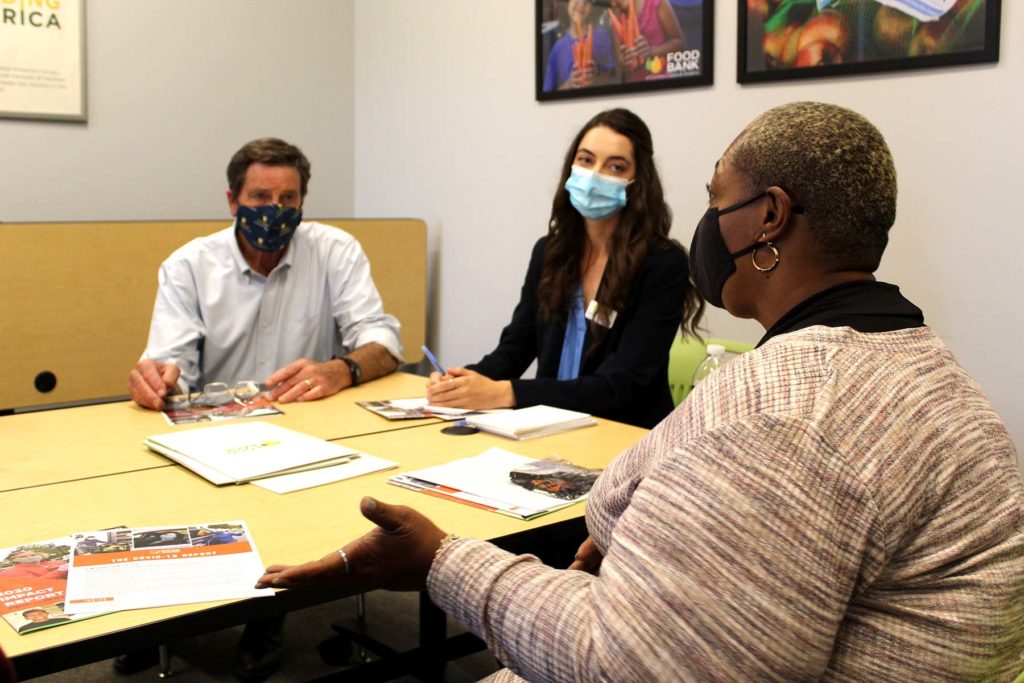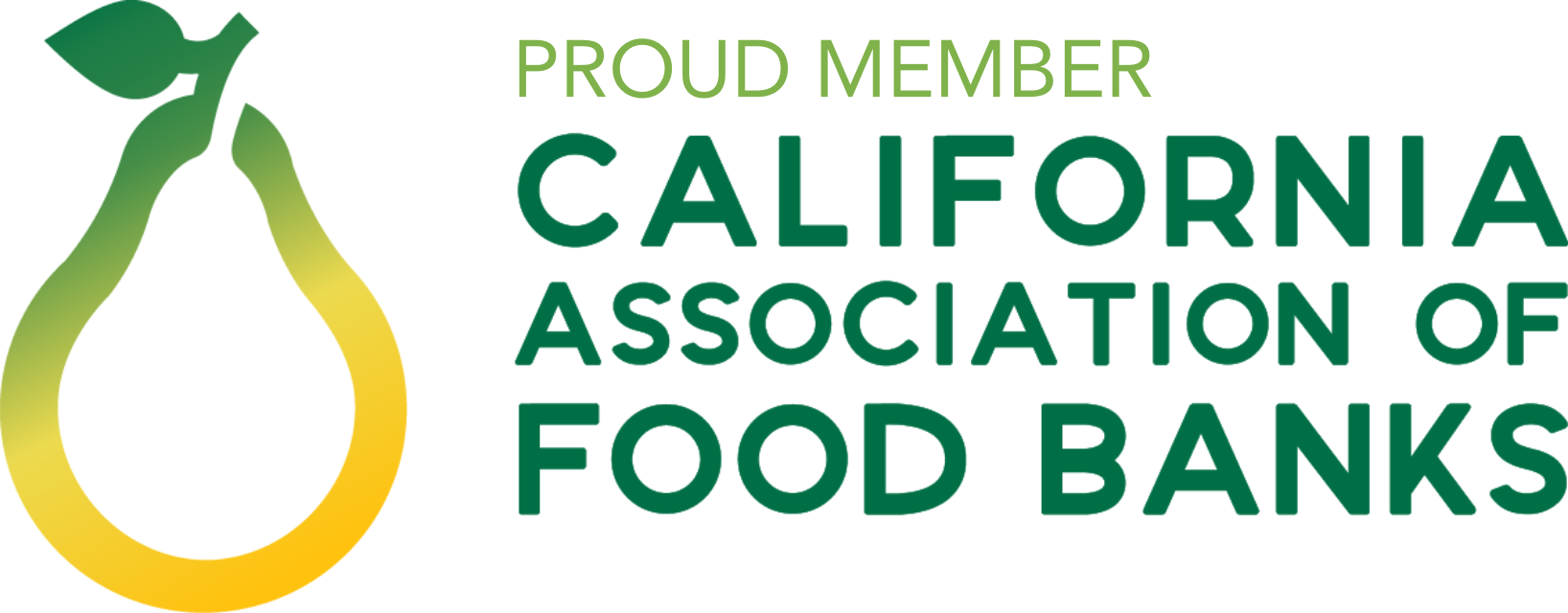Providing food to people when they need it is an important part of fighting hunger – but it’s also important to create a community where healthy food is accessible to everyone. This month, we’re excited to release the Food Bank’s 2023 Legislative Agenda, the list of bills and funding requests we are supporting that will improve food access at the local, state and federal level.
For 2023, we’re focusing our agenda on three priority areas: Our social safety net, California’s food systems – including food banks – and building effective hunger-fighting partnerships with community members, elected officials and other organizations.
Keep reading to find what went into building our latest policy platform, and learn more about some of the hunger-fighting bills we’ll be supporting throughout the year.
Where do the Food Bank’s policy priorities come from?
We’re focused on effective public policy that promotes equitable, dignified and client-centered access to food, and addresses hunger through the many lenses of our diverse community – especially those with lived expertise.
Our Food Bank Advocacy Team begins setting our policy priorities annually each fall. To ensure our agenda reflects the diverse communities we serve, our team begins with a four step process:
- Reflect on the legislative successes of the previous year.
- Identify the root causes of hunger in our region and the food access barriers that still exist and may not have been addressed with existing legislation or funding
- Collaborate and seek input from community members with lived experience of hunger and/or those who are champions for sustainable and equitable food policies. We consult our volunteer-advocates, also known as our Community Advocacy Partnership (CAP), Food Bank staff, Board members and members of the community.
- Meet with legislators to discuss the Food Bank’s mission and explore the potential of supporting legislation promoting food security.
After completing these steps, the Food Bank begins formally creating its annual policy priorities – the list of policy areas we will focus on in the new legislative cycle at the local, state and federal levels. Once bills are introduced in the California Legislature and within the United States Congress, we build on these policy priorities to create our official Legislative Agenda.
Priority 1: Social Safety Net Programs
The Social Safety Net includes food assistance programs like CalFresh/SNAP, WIC and TEFAP. It also includes other programs that contribute to the ability of individuals experiencing poverty to meet their needs. These programs improve the daily lives and long-term outcomes of the neighbors they support, and can also provide broader community benefits like economic stimulus and reduced health care costs. It’s crucial they are robust and funded.
At the state level, bills we are advocating for include:
- SB 348 Skinner
Ensures that meals provided at California’s public schools meet the American Academy of Pediatrics’ nutritional guidelines. - SB 600 Menjivar
Raises the minimum CalFresh benefit to $50 per month. The current minimum is $23. - SB 245 Hurtado & Rubio / AB 311 Santiago
Allows Californians of all ages to qualify for CalFresh benefits regardless of immigration status. - AB 274 Bryan
Scholarships and grants used to pay for education would not be counted as “income” when students apply for CalFresh benefits. - AB 1178 Rivas
Allows summer meal sites to offer meals to parents and caregivers, giving them the opportunity to eat a shared meal with their children. - AB 679 Wicks
Food with Care: This bill will bring equity to childcare nutrition programs by eliminating the supplemental State Meal Reimbursement rate gap for feeding young children in family childcare settings. Currently, child nutrition programs start in Kindergarten and don’t cover children in pre-K settings like daycares and preschools.
Our full federal legislative agenda is still in the works, but one area of focus for us is the 2023 Farm Bill, which will set federal nutritional funding for the next five years. Read more about our Farm Bill advocacy.
Priority 2: Strengthening Food Systems and Food Banks
The uncertainty of the past few years has made it clear that both our Food Bank and California’s agricultural system need to be able to adapt and respond to community needs, including natural disasters, climate change and growing food insecurity in our state.
Here are a few of the ways we’re advocating to strengthen our food systems:
- Permanent authorization for the state’s disaster food assistance program would ensure there is emergency food available for victims of wildfires, floods and other natural disasters when the state’s current supply of food runs out.
- Increased baseline funding for CalFood would enable food banks to purchase more California-grown foods.
- A one-time $180-million climate and capacity investment would help California’s food banks prepare for the effects of climate change and expand their capacity to ensure we can continue to serve our neighbors.
Priority 3: Policy partnerships for hunger solutions
Ending hunger is a community effort. We work closely alongside our elected officials, community-based organizations, coalitions and community members – particularly those with lived experience of hunger – to identify the root causes of hunger and implement strategic solutions.
You can be part of our community hunger solution!
Sign up for The Brief, our monthly advocacy newsletter, and get the scoop on how we can work together to improve food access and create a hunger-free community.




